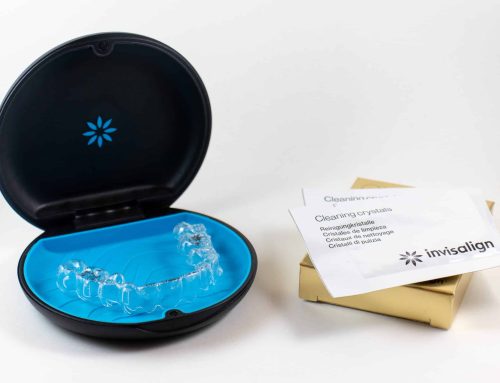Tooth sensitivity in Frisco can affect people of all ages. Common causes of this problem include thinning enamel, cavities, and cracks in the tooth surface. Possible treatments include desensitizing toothpaste, spot fluoride applications, gum grafts, and root canals.
What Causes Tooth Sensitivity?
Inside each of your teeth is a semi-solid substance called pulp that contains an intricate network of blood vessels and nerves. Protecting this sensitive material is the job of the external enamel. But the enamel itself is vulnerable to damage caused by sugar consumption, acidic beverages, tobacco use, or physical damage.
As enamel breaks down, the nerves in the pulp become more sensitive to heat, cold, and other stimuli. As a result, they send pain signals to the brain, which is the problem at the heart of tooth sensitivity.
How Can Tooth Sensitivity Be Treated?
Fortunately, there are many ways to treat sensitive teeth. Choosing the right approach in your case starts with a complete oral examination performed by your dentist. He or she will determine the underlying cause of the problem and suggest possible treatments. These may include:
- Desensitizing toothpaste. These products work by blocking the pain signals associated with teeth sensitivity. They can also help to rebuild worn enamel.
- Concentrated fluoride. Your dentist may choose to apply fluoride directly to sensitive areas of your teeth to strengthen the enamel. He or she may also provide take-home fluoride kits that include a customized tray for your teeth.
- Gum grafts. Tooth sensitivity is sometimes caused by exposed root surfaces. Your dentist in Frisco may graft a small amount of gum tissue to the affected area to reduce discomfort. Sometimes bonding resin is used for the same purpose.
- Root canal. This is the most comprehensive way to treat tooth sensitivity problems. It removes damaged pulp entirely, replacing it with dental filling compound and protecting the tooth’s integrity for the long term.
Self-Care Tips for Tooth Sensitivity
Sometimes all that’s needed to relieve the symptoms of tooth sensitivity is to make a few minor lifestyle changes. These may include:
- Switching to a low-abrasive brand of toothpaste or using a brush with softer bristles.
- Adopting a different brushing style. Some people brush their teeth too aggressively, which can make them sensitive.
- Limiting consumption of acidic liquids such as coffee, tea, and alcohol or switching to less acidic versions of these products.
- Using a nighttime mouthguard. These products help to prevent teeth grinding, a major cause of tooth sensitivity problems.
- Avoiding all forms of tobacco and vaping products. Not only do they damage tooth enamel, they can have devastating consequences for your overall health as well.
Your dentist in Frisco can make additional recommendations for treating sensitive teeth. Make an appointment to see him or her soon to discuss your options. You’ll soon be on your way to stronger, healthier teeth and gums.
About the Author
Dr. Kristi Moody has been practicing dentistry for more than 20 years. She earned her DDS degree from the University of Nebraska Medical Center and completed her residency training at Baylor College of Dentistry. You can reach her office online or by calling (469) 361-0081.




